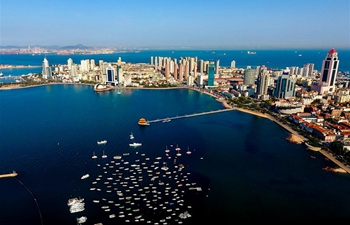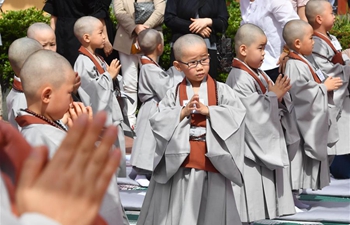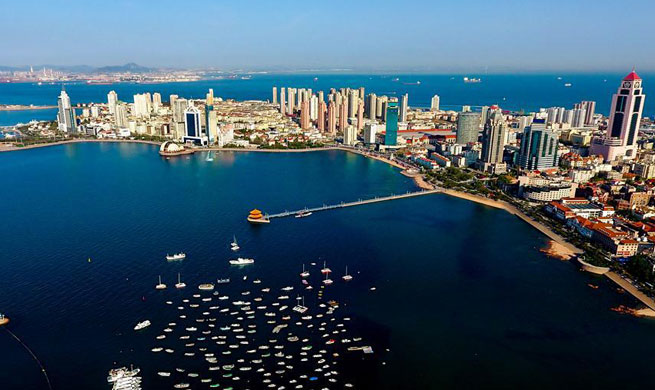by Hummam Sheikh Ali
DAMASCUS, May 15 (Xinhua) -- Every mid-May in the last 70 years, Palestinians commemorate the Nakba Day, or "Day of Catastrophe," as nearly a million Palestinians were displaced before and after the Israeli declaration of independence in 1948.
As 70 years have passed, the Palestinians who fled to neighboring countries are still being referred to as refugees, who are clinging fast to a hope that they would one day return to their original land.
Despite Palestinian decades of demand for their rights of return, the international community has abjectly failed to bring about any peaceful solution to this struggle.
Meanwhile, the situation seems to be sliding from peace, as the U.S., a key mediator between Israelis and Palestinians, has adopted new policies regarded by the majority of the Palestinians as nothing but biased and impartial.
A day earlier, the U.S. relocated its embassy in Israel from Tel Aviv to Jerusalem, after blatantly recognizing the disputedly holy city as the capital of Israel last December.
The move was considered by the Palestinians as illegal, as the majority of the UN member states and most international organizations do not recognize Israel's sovereignty over East Jerusalem, which was annexed by Israel after the 1967 Six-Day War.
On Monday, an estimated 50,000 Palestinians protested along the border fence between Gaza and Israel against the relocation of the U.S. embassy to Jerusalem, in which the Israelis shot dead 60 and wounded more than 2,000 others.
"It's a sad and painful day for the Palestinians as the U.S. relocation of the embassy to Jerusalem and declaring it as Israel's capital run against all the UN resolutions. It further pushes away all efforts for peace," Rula Youssef, a Palestinian lawyer in Syria, told Xinhua.
The Palestinians consider the 70th anniversary of the Nakba Day and the wide-scale protests as the "beginning of the return," Youssef noted.
Hussam Deeb, a Palestinian journalist, also sees the U.S. embassy move to Jerusalem as an insult to the feelings of the Palestinians and Muslims around the world given the religious and historic significance of the holy city.
It feels like "someone giving something that he doesn't own," he said.
The U.S. has lost its mediator role in promoting the peace process between Israelis and Palestinians, "as Jerusalem is one of the last-solution cases, whose situation should be settled as part of a final solution to the Israeli-Palestinian conflict," Deeb explained.
He said an overhaul of the current international mediation mechanism is needed after the U.S. embassy move, "which constitutes a new tension point that has sparked further confrontations."
Skepticism now overshadows the prospects of the solution to the Israeli-Palestinian conflict and sparks fear of Trump's "deal of the century" to be presented to solve the Israeli-Plalestinian conflict, Deeb noted.
The deal "seems to undermine the rights of the Palestinians and make their right of return a far-fetched dream," he lamented.
In Syria, a host of an estimated 500,000 Palestinian refugees ahead of the current seven-year civil war, the government has vehemently condemned the U.S. move and the killing of dozens of Palestinians by Israelis.
"This massacre can only be considered as a war crime and a crime against humanity," the Syrian Foreign Ministry said in a statement on Monday.
The Palestinians' battle against Israel is a Syrian battle as well, "because Israel supports the terrorist groups that kill the Syrian people," it added.

















